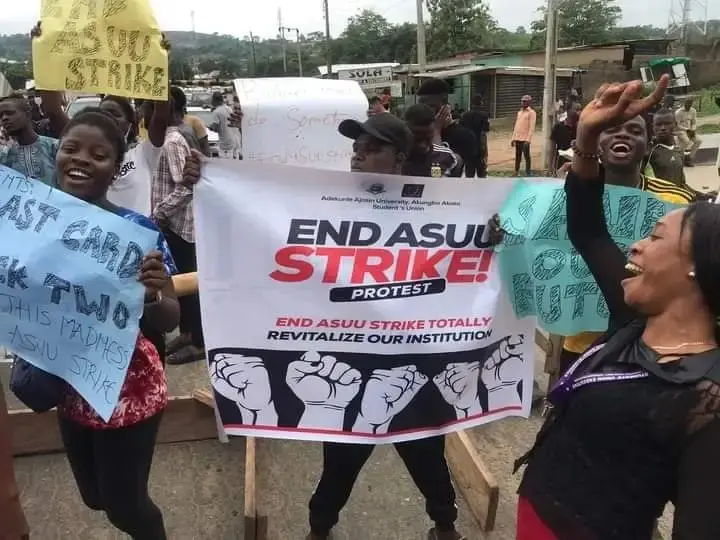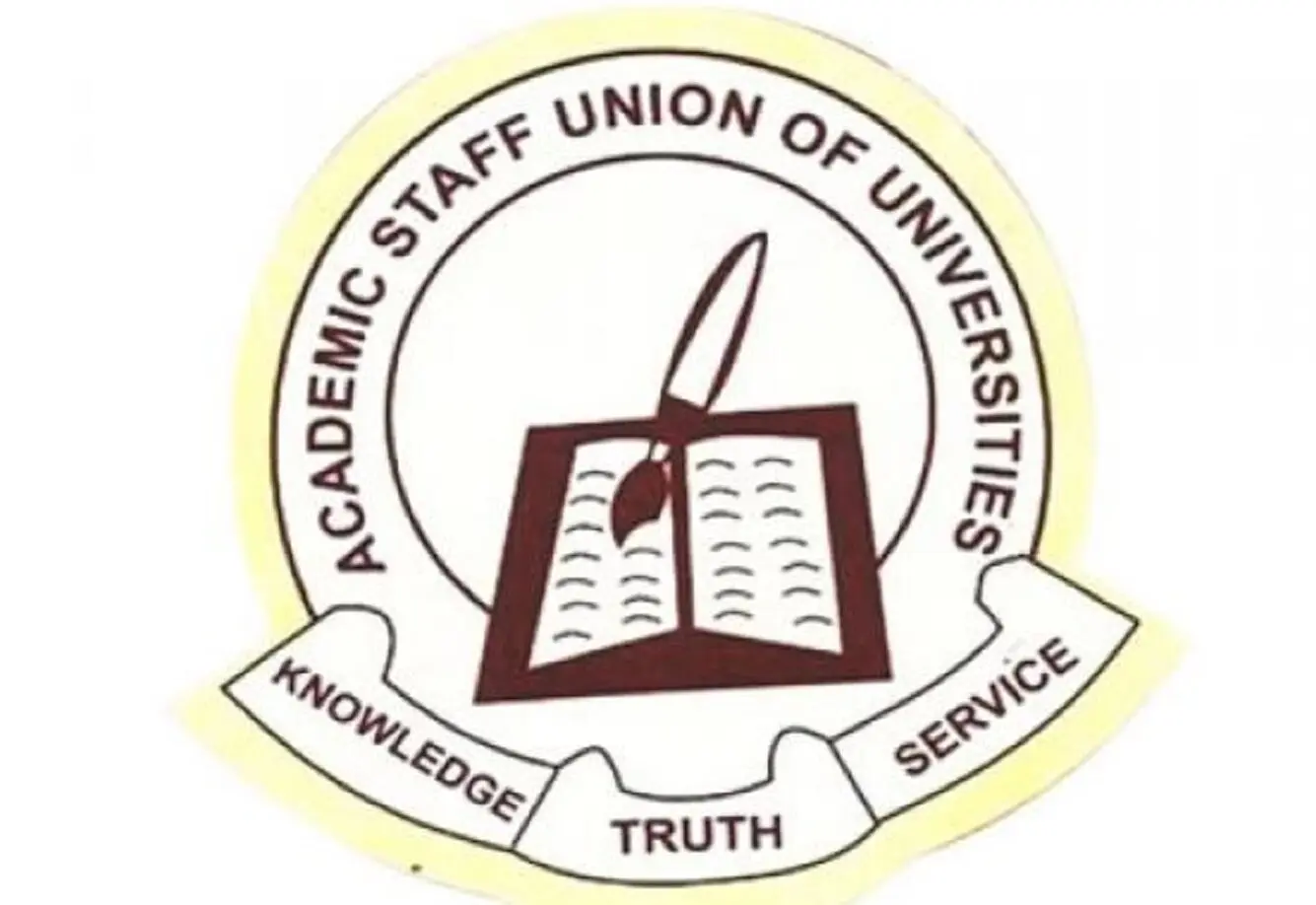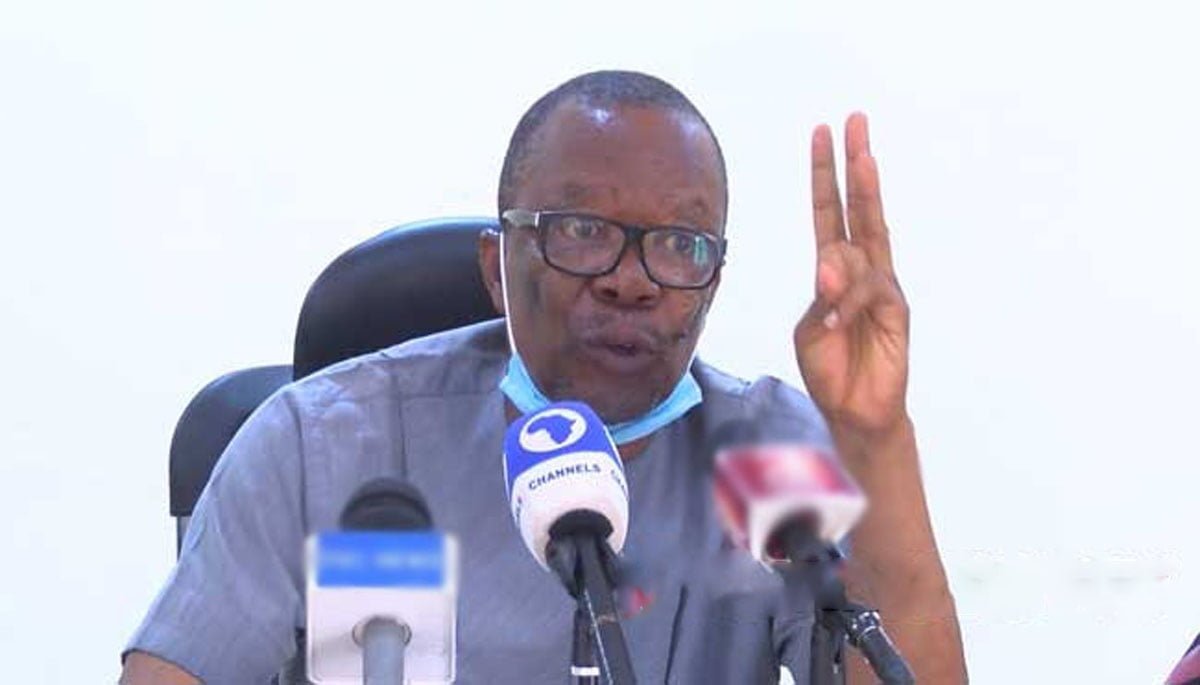Education
University Students Lament as Lecturers’ Strike Enters Fourth Month

By Derrick Bangura
Some students of Nigerian public universities have expressed frustration over the lingering strike by the Academic Staff Union of Universities (ASUU).
ASUU has been on strike since February and all efforts to make lecturers return to the classrooms have not yielded results.
Some of the students in an interview with the News Agency of Nigeria (NAN) in Port Harcourt, appealed to the federal government to meet at least 50 per cent of ASUU demands to end the strike.
A third-year student of the University of Port Harcourt, Greatness Nnamdi, who is studying gas engineering, said that the ongoing strike was impacting negatively on the plans of Nigerian students.
He said although he enrolled for a five-year programme in 2017, he was still in the first semester of the third year because of the ASUU constant strike and the outbreak of the COVID-19 pandemic in the country.
“My mates who left Nigeria to study abroad have graduated, some are in their final year and it seems those of us in Nigeria are forgotten.
“You don’t expect students who spent most of their time on strike and who also studied without properly equipped laboratories to come out with good grades or become experts in their fields.
“I am appealing to the federal government to put in some efforts to meet the demands of ASUU, at least 50 per cent and this will also make the lecturers not depend on students for their upkeep.
“I plead with the government to bring back hope for Nigerian youths, our plans and programmes are slowing down.
“I also plead with the government to employ young graduates to teach new technologies and innovations in our universities,” Nnamdi-Ikpo said.
Similarly, a student of the University of Calabar, Ms Gift Nwafor, who studying education psychology, said that the ongoing strike had frustrated and setback her studies.
Nwafor expressed displeasure at the ongoing strike, saying that the action was leading some students into crime.
“Honestly, I am very sad and frustrated. My two siblings and I have been at home since Feb. 14 and our rent for this year would soon expire without being in school.
“My greatest fear is that some of us have gone into crimes… They are into theft, raping and consumption of hard drugs.
“I am appealing to the federal government and ASUU to consider our future and call off the strike so that we can go back to school,” Nwafor said.
ASUU Chairman at the Abia State University, Mr. victor Nkemdirim, attributed the strike to the non-revitalisation of public universities in the country.
Nkemdirim told NAN that ASUU was fighting for the revitalisation of the institutions.
He said since 2009 the government has been unable to implement its agreements with ASUU.
He said that the government had always reneged on the Memorandum of Understanding and the Memorandum of Action it signed with the lecturers.
He stated that since the founding of some public universities, the government`s presence there had been minimal, except for projects embarked by the Petroleum Trust Fund(PTF) which came about as a result of ASUU agitations.
Nkemdirim said if not for ASUU’s continued struggles, most of the states and federal universities would have gone under by now.
He also recalled that ASUU had continued to oppose the Integrated Pay Roll and Personnel Information System(IPPIS), a foreign-based platform, which he said the Federal Government was servicing yearly with N7 billion.
“This (IPPIS) platform contravenes the university autonomy which means that the council of the universities do not have the right to employ or dismiss staff.
“ASUU was asked to develop a platform that is congenial to the university system and it came up with University Transability and Accountability Solution (UTAS) which in all tests, including the integrity test, scored 99.7 per cent pass mark.
“We have also decided to fight for the upgrade of our salaries. We have been receiving the same salary since 2009 while our counterparts
in the polytechnics and colleges of education are earning more than us.
“All these reasons are why ASUU is still on strike. I, therefore, urge the state and Federal Government to understand that education is paramount to the development of the Nigerian system in its entirety,” Nkemdirim explained.
Education
Nafisa Spoke, the World Listened, And Nigeria Shined

Nafisa Spoke, the World Listened, And Nigeria Shined
By Matthew Eloyi
When I first read about 17-year-old Nafisa Abdullah Aminu emerging as the World Best in English Language Skills at the 2025 TeenEagle Global Finals in London, I paused, read it again, and then sat quietly, moved in a way I haven’t been in a long time. In that moment, I wasn’t just a Nigerian reading a piece of good news; I was a Nigerian filled with pride, hope, and a renewed belief in our greatness.
Let me be honest: in a country weighed down by insecurity, economic hardship, and a struggling educational system, it’s easy, too easy, to become cynical. But Nafisa’s victory pierced through that fog of despair and reminded me why I have always believed in this country, despite everything.
Think about it: this young girl, from Yobe State, a region often reduced to a footnote in conversations about insecurity and poverty, stood on a global stage in London, not just to participate, but to conquer. She didn’t just win a medal. She defeated over 20,000 participants from 69 countries, including from places where English is a first language.
Let that sink in.
As someone who has spent years writing, editing, and advocating for better education in Nigeria, I understand just how powerful and rare this kind of achievement is. I see myself in Nafisa, in her curiosity, her hunger for knowledge, and her refusal to be boxed in by circumstance. Her story makes me emotional, not just because it’s inspiring, but because it reminds me of the many gifted Nigerian children who never get the chance to shine. Nafisa represents them, and she represents what’s possible when we choose to invest in our youth.
I am also deeply moved by the humility and grace of the Aminu family, who publicly acknowledged the role of Governor Mai Mala Buni’s educational reforms and the impact of Nigerian Tulip International College in preparing their daughter for the global stage. This wasn’t a solo journey; it was a collective effort rooted in family values, good governance, and dedicated educators.
“We cannot take all the credit,” they said. And in that simple statement, they reminded me that when leadership, community, and family work together, magic happens.
Nafisa’s win isn’t just a win for Yobe State. It’s not even just a win for Nigeria. It’s a resounding answer to every doubt we’ve ever had about our potential as a nation. Her victory tells every Nigerian child that “you are enough, and the world will hear your voice if you dare to speak it.”
As I write this, I think about the millions of young girls in the North and across Nigeria who will see Nafisa’s face and think, “If she can do it, so can I.” That, right there, is the power of representation.
I join the growing chorus of voices calling for State and National Honours for Nafisa. We must celebrate her not just with headlines, but with action, by investing more in education, giving scholarships, and ensuring that no child with potential is left behind because of geography, gender, or poverty.
To Nafisa, if you ever read this, know that you didn’t just win a competition; you reignited a nation’s pride. You gave us something we desperately needed: a reason to believe again.
And to Nigeria, this is who we are: brilliant, resilient, and unstoppable when given a chance.
Nafisa didn’t just make Yobe proud. She made me proud. She made us proud.
Education
NELFUND Begins Upkeep Payments to Over 3,600 Students After Bank Detail Update

The Nigerian Education Loan Fund (NELFUND) has commenced the disbursement of upkeep payments to students who successfully updated their bank account details from digital wallets to commercial bank accounts.
This was announced in a statement released on Friday in Abuja by the Director of Strategic Communications of the Fund, Mrs. Oseyemi Oluwatuyi.
Oluwatuyi described the development as a significant breakthrough in addressing earlier disbursement delays.
“Over 3,600 students, who previously registered with digital-only banking platforms, have now successfully received their backlog of upkeep payments after updating their details to conventional commercial bank accounts on the NELFUND portal,” she stated.
“We appreciate the patience and understanding of all affected students during this period. Your resilience and cooperation have made this progress possible,” she added.
The NELFUND spokesperson advised students who have yet to update their bank details to raise a support ticket via the official NELFUND portal to request access for the update.
She further urged affected students to report through the IT office of their respective institutions, which would compile and forward all related cases to NELFUND for prompt resolution.
“NELFUND remains committed to ensuring that no eligible student is left behind. This resolution process is part of our broader effort to enhance the efficiency, transparency, and student-centered delivery of our support services,” she said.
Oluwatuyi encouraged students to continue engaging only through official NELFUND channels and to assist their peers who may need help navigating the update process.
She also provided contact options for inquiries, stating that the fund can be reached via email at info@nelf.gov.ng or through its official social media handles: X (formerly Twitter) @nelfund; Instagram @nelfund; and Facebook & LinkedIn: Nigerian Education Loan Fund – NELFUND.
Education
NELFUND Urges Institutions to Upload Student Data for Loan Processing

The Nigerian Education Loan Fund (NELFUND) has issued a directive to all accredited tertiary institutions to verify and upload their students’ data on the newly digitised Student Loan Application System (SLAS).
This was disclosed in a statement released in Abuja on Wednesday by the Director of Strategic Communications at NELFUND, Mrs Oseyemi Oluwatuyi.
According to Oluwatuyi, the SLAS platform has been fully digitised to streamline and accelerate the student loan processing experience for both institutions and applicants.
“With this upgrade, all accredited institutions are now required to request access to SLAS to verify and upload student data related to loan applications,” she said.
She described the move as “a critical step that ensures the timely processing and disbursement of approved student loans.”
Institutions that have not yet been onboarded onto the system, she said, are advised to send an access request to registration@nelf.gov.ng without delay.
“Once granted access, institutions will be able to view a real-time dashboard of their students’ loan applications, verify submitted data, and track the status of each application,” Oluwatuyi explained.
She called on all institutions to take immediate action in the interest of their students, stressing that verification and data upload by institutions are mandatory steps before final approval and disbursement of loans can be completed.
On the students’ side, Oluwatuyi noted that if an application status currently shows “Verified,” it means the application has passed initial checks. However, final approval and disbursement depend on the institutions’ confirmation and data upload.
“Once this process is completed, your status will be updated to ‘Disbursed’ when the payment of your fees has been processed,” she added.
She also encouraged students to reach out to the fund for assistance via email at info@nelf.gov.ng.
Other official communication channels include:
-
X (formerly Twitter): @nelfund
-
Instagram: @nelfund
-
Facebook & LinkedIn: Nigerian Education Loan Fund – NELFUND
-

 Headlines4 years ago
Headlines4 years agoFacebook, Instagram Temporarily Allow Posts on Ukraine War Calling for Violence Against Invading Russians or Putin’s Death
-

 Headlines4 years ago
Headlines4 years agoNigeria, Other West African Countries Facing Worst Food Crisis in 10 Years, Aid Groups Say
-

 Foreign4 years ago
Foreign4 years agoNew York Consulate installs machines for 10-year passport
-

 News1 year ago
News1 year agoZero Trust Architecture in a Remote World: Securing the New Normal
-

 Entertainment3 years ago
Entertainment3 years agoPhyna emerges winner of Big Brother Naija Season 7
-

 Headlines2 years ago
Headlines2 years agoNigeria Customs modernisation project to check extortion of traders
-

 Entertainment2 years ago
Entertainment2 years agoMovie download platform, Netnaija, announces closure
-

 Economy2 years ago
Economy2 years agoWe generated N30.2 bn revenue in three months – Kano NCS Comptroller














